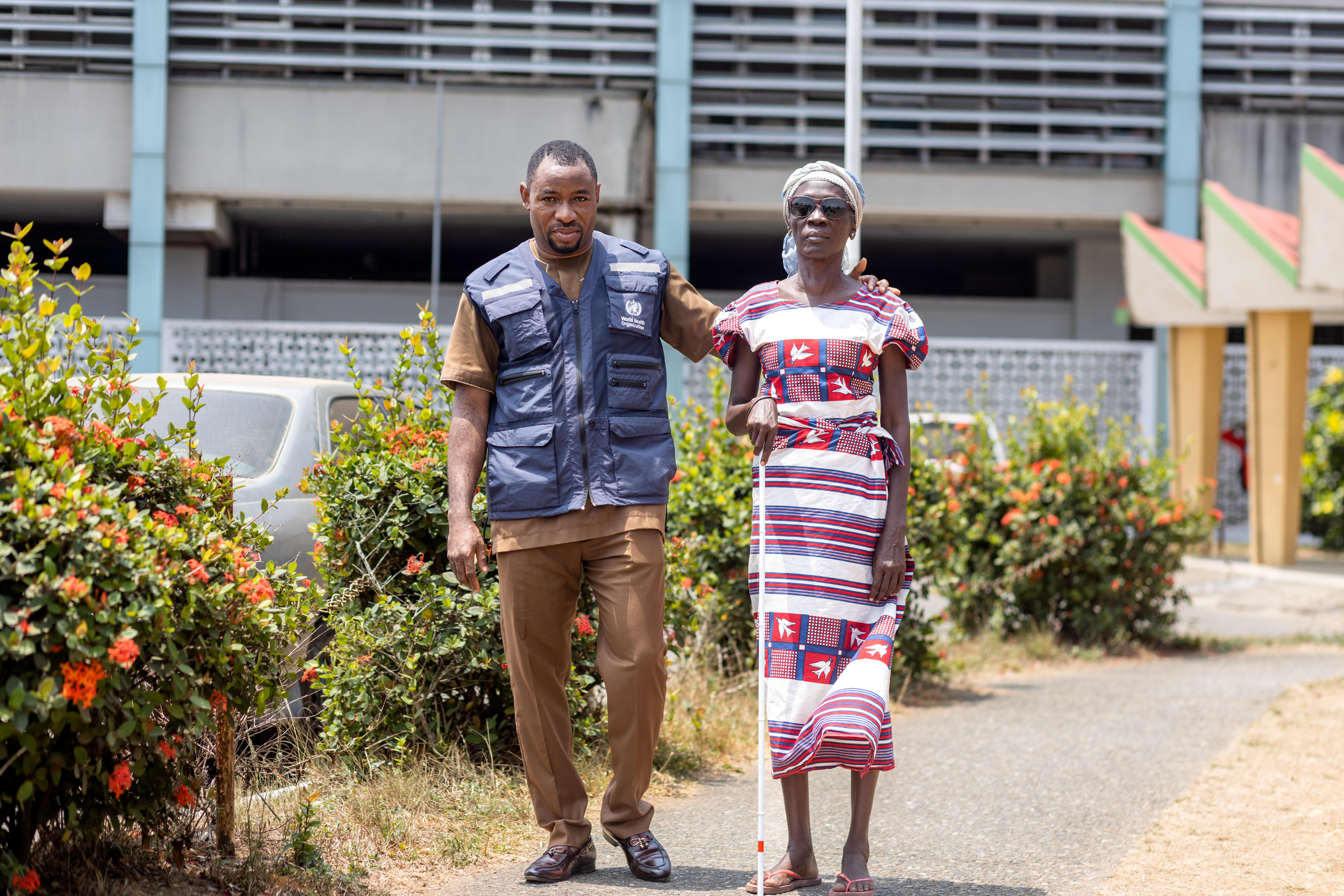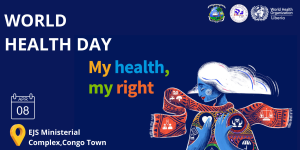Ensuring Health Equity: Narrowing the barrier gaps in accessing health care
Op Ed
Dr. Clement Peter- WHO Representative - Liberia
 The theme of this years’ World Health Day, "My Health, My Right," encourages us to reduce inequity and barriers affecting access to health services wherever and whenever people need them. This theme resonates well with the existing inequities to accessing health care globally, but also in least developed countries including Liberia. Marginalized and hard-to-reach communities often suffer disproportionately. Hence, to achieve Universal Health Coverage (UHC), we must leave no one behind. Limited access to health information, lifesaving health care services, essential medicines and health commodities, as well as weak health infrastructure have profound impact on the quality of health care and its outcomes. The disparity in access to health care affects and impacts heavily on children, adolescents and women, especially pregnant women.
The theme of this years’ World Health Day, "My Health, My Right," encourages us to reduce inequity and barriers affecting access to health services wherever and whenever people need them. This theme resonates well with the existing inequities to accessing health care globally, but also in least developed countries including Liberia. Marginalized and hard-to-reach communities often suffer disproportionately. Hence, to achieve Universal Health Coverage (UHC), we must leave no one behind. Limited access to health information, lifesaving health care services, essential medicines and health commodities, as well as weak health infrastructure have profound impact on the quality of health care and its outcomes. The disparity in access to health care affects and impacts heavily on children, adolescents and women, especially pregnant women.
Many countries including Liberia have enshrined the right to health in their constitutions, a right we must strive to make a reality for every citizen. Narrowing the inequity barriers is a step in the right direction to improve health and wellbeing of every citizen. This bold approach will help to reduce the unacceptable and preventable illnesses and deaths that often affect children and women. For example, Liberia declared maternal and neonatal mortality a public health emergency almost seven years ago, but we are still far from substantially reducing the high deaths among neonates and women, and also off-track in achieving the Sustainable Development Goal (target). The country continues to be challenged among others, with weak infrastructure affecting access in rural communities, weak health system, inadequate investment to the health sector, and very limited community insurance scheme.
Health is not merely the absence of disease but a state of complete physical, mental, and social well-being as defined by the World Health Organization (WHO). It is a human right, as enshrined in the Universal Declaration of Human Rights. However, achieving health equity requires solid commitment in addressing the underlying social determinants of health, including poverty, inequality, infrastructure, education, and water and sanitation just to mention a few.
The shocks from the unprecedented Ebola Virus Disease (EVD) outbreak and the recent COVID-19 pandemic have further exacerbated these disparities, highlighting the need for a more comprehensive, integrated and inclusive approach to healthcare. While the pandemic has tested the country’s resilience, it has also underscored the importance of partnership, solidarity and collaboration in addressing global health challenges.
Investment in the health sector cannot be overemphasized because health is central to productivity and development. It is pleasing to note that the government of Liberia is in the process of increasing the budget allocation to health, making it a priority in the ARREST agenda. This action is commendable. Meaningful investment in this sector remains paramount in achieving better health outcomes.
Reflecting on the theme of this year’s World Health Day, my attention is drawn to a 16-year girl, Pamela (not her real name) from Brewerville community, whose life changed following complications from tuberculosis, which affected her spine and eventually her ability to walk. With no walking aids, life turned for the worse, as her mother had to put in more time to care for her daughter instead of addressing other family needs and engaging in development work. The timely provision of assistance to a person in need can be a game changer. With assistive technology support, it was amazing to see the difference crutches can make in a life of such a potential girl. Today Pamela is back in class, playing with her friends like any other child, and scoring very high grades in school, making her second in class in the past semester. Pamela’s story speaks volumes of the many persons living with disabilities or almost neglected in Liberia who may not have had an opportunity to receive the limited assistive technology supplies or have access to health care when and where they need it.
On this World Health Day, let us make the commitment and paradigm shift to:
1. Prioritize investments in healthcare, ensuring equitable access to essential services across the country. Investing in healthcare infrastructure and strengthening the health system is critical.
2. Placing communities at the forefront in the planning and delivery of health services. Engaging communities on health preventative measures, hygiene practices and empowering them to take ownership of health services is important.
3. Partnership, collaboration and solidarity are cardinal. WHO remains a committed partner to the government of Liberia in achieving the national health agenda and ensuring all Liberians achieve better health and wellbeing.
This year, let us not just celebrate the right to health, but actively work towards its fulfillment. Let us ensure that every Liberian, regardless of background or location, can access the healthcare they deserve without financial hardship or discrimination. A healthy Liberia is a thriving Liberia, and together, we can make it a reality- by promoting and committing to universal access to health care. My health, your health, our collective health – is a right to health and wellbeing for all Liberians.



